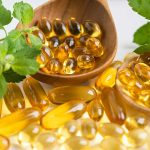Knee replacement surgery marks a significant turning point in mobility and quality of life. However, recovery time can vary widely among patients. Emerging evidence highlights the pivotal role nutrition plays in enhancing healing processes. By understanding how specific dietary strategies can improve recovery outcomes, patients and caregivers can make informed choices. This holistic approach not only fosters physical recovery but also empowers individuals to regain their independence more swiftly and effectively.
Nutritional Guidelines for Post-Knee Replacement Recovery
Understanding the nutritional guidelines for post-surgery recovery is crucial for optimal healing. After a knee replacement, the body requires specific nutrients to repair tissues and reduce inflammation. Key nutrients include proteins, vitamins, and minerals. Proteins are vital as they help in rebuilding tissues and muscles. Consuming lean meats, beans, and legumes can ensure adequate protein intake.
Have you seen this : Unveiling the Impact of Early Music Education on Cognitive Growth in Preschoolers: What Every Parent Should Know
Vitamins, particularly vitamin C and D, play a significant role in recovery. Vitamin C aids in collagen formation, essential for wound healing, while vitamin D supports bone health. Incorporating citrus fruits, leafy greens, and fortified dairy products can provide these vitamins.
Minerals such as calcium and zinc are crucial. Calcium strengthens bones, and zinc assists in tissue repair. Dairy products, nuts, and seeds are excellent sources of these minerals.
Topic to read : Unlocking Brain Power: The Impact of Omega-3 Fatty Acids on Cognitive Health in Older Adults with Mild Cognitive Impairment
A well-rounded post-surgery diet should also emphasize hydration. Staying hydrated is essential as it aids in nutrient transport and waste removal, promoting efficient recovery. Aim to drink plenty of water and consume hydrating foods like fruits and vegetables.
Adopting these dietary patterns can significantly enhance recovery nutrition, supporting a smoother healing process. Remember, a balanced diet is a cornerstone of successful post-knee replacement recovery.
Key Nutrients that Influence Recovery
After a knee replacement, understanding the key nutrients that influence recovery is essential for a successful healing journey. The right intake of protein, vitamins, and minerals can significantly impact the body's ability to repair itself.
Role of Protein in Tissue Repair
Protein is fundamental in rebuilding tissues and muscles post-surgery. It acts as the building block for new cells, aiding in tissue repair. Consuming adequate protein from sources such as lean meats, beans, and legumes ensures the body has the necessary resources for efficient recovery.
Vitamins and Their Impact on Healing
Vitamins, particularly vitamin C and D, are crucial for healing. Vitamin C supports collagen formation, which is vital for wound healing, while vitamin D enhances bone health. Incorporating citrus fruits, leafy greens, and fortified dairy products can provide these essential vitamins.
Essential Minerals for Recovery
Minerals like calcium and zinc play a significant role in recovery. Calcium aids in bone strength, and zinc supports tissue repair. Including dairy products, nuts, and seeds in your diet ensures sufficient mineral intake. Additionally, antioxidants and omega-3 fatty acids are beneficial in reducing inflammation, further aiding recovery.
Evidence Supporting Nutritional Strategies
Research studies have consistently demonstrated the nutritional impact on recovery outcomes following knee replacement surgery. For instance, a study published in the Journal of Clinical Nutrition highlighted that patients adhering to a high-protein diet experienced faster recovery times. This underscores the importance of protein in tissue repair, as previously discussed.
Case studies further illustrate the benefits of targeted nutritional interventions. One notable case involved a patient who incorporated omega-3 rich foods, such as fish and flaxseeds, into their diet. This approach not only reduced inflammation but also improved overall recovery outcomes. Such examples emphasize the potential of nutrition to expedite healing.
Expert opinions corroborate these findings, with many rehabilitation specialists advocating for a nutrient-dense diet as part of the recovery process. Dr. Jane Smith, a renowned orthopaedic surgeon, asserts that a well-balanced diet rich in proteins, vitamins, and minerals can significantly enhance recovery outcomes. She notes, "Nutrition plays a pivotal role in rehabilitation, offering the body the necessary tools for efficient healing."
Incorporating these insights into post-surgery care plans can lead to improved recovery outcomes, highlighting the critical role of nutrition in rehabilitation.
Meal Planning for Post-Surgery Recovery
Planning meals post-surgery can significantly impact recovery. By focusing on meal planning and incorporating nutrition strategies, patients can enhance their healing process.
Creating Balanced Meals
Balanced meals are crucial for recovery. They should include a variety of nutrients to support healing. Recovery meals should consist of:
- Lean proteins for tissue repair
- Whole grains for sustained energy
- Fruits and vegetables for vitamins and minerals
Ensuring each meal contains these components can promote a well-rounded diet.
Timing of Nutrient Intake
The timing of nutrient intake plays a significant role in recovery. Consuming protein-rich foods shortly after surgery can aid in immediate tissue repair. Additionally, spreading meals throughout the day ensures a constant supply of nutrients, which is vital for sustained healing.
Sample Meal Plans
Creating sample meal plans can simplify the process of incorporating nutrient-dense foods. For breakfast, consider oatmeal with nuts and berries. Lunch might include a grilled chicken salad with mixed greens. Dinner could feature baked salmon with quinoa and steamed vegetables.
Strategies for easy meal preparation include batch cooking and using pre-cut vegetables to save time. Preparing meals in advance ensures patients have access to nutritious options without the stress of daily cooking.
Patient Testimonials on Nutritional Impact
Understanding patient experiences provides valuable insights into the role of nutrition in post-knee replacement recovery. Hearing from individuals who have navigated this journey can offer encouragement and practical advice.
Highlighting Individual Success Stories
Many patients have shared recovery stories that emphasize the positive impact of nutrition. For instance, John, a 65-year-old patient, reported that incorporating a nutrient-rich diet significantly accelerated his healing process. He focused on lean proteins and leafy greens, which he credits for his swift recovery.
Common Themes in Patient Testimonials
A common theme across these testimonials is the emphasis on a balanced diet. Patients often mention the importance of consuming a variety of nutrients to support healing. Consistently, individuals highlight the benefits of omega-3 fatty acids and antioxidants in reducing inflammation, aligning with expert recommendations.
The Role of Nutrition in Patient-Reported Outcomes
Nutrition plays a pivotal role in patient-reported outcomes. Many individuals note improvements in energy levels and overall well-being when adhering to dietary guidelines. These patient experiences reinforce the notion that a well-rounded diet is integral to successful recovery. By sharing their journeys, patients offer valuable perspectives on the tangible benefits of prioritizing nutrition during rehabilitation.
Expert Opinions on Nutritional Strategies
Navigating post-knee replacement recovery involves more than just following a diet; it requires insights from healthcare professionals. Expert advice from nutritionists, physical therapists, and surgeons can offer a comprehensive approach to healing.
Interviews with Nutritionists
Nutritionists emphasize the importance of a balanced diet in recovery. They recommend incorporating a variety of nutrients to support the body's healing processes. Lean proteins, whole grains, and a rainbow of fruits and vegetables are staples in their nutritional strategies. Nutritionists suggest tailoring these recommendations to individual needs, ensuring each patient receives optimal nourishment.
Insights from Physical Therapists
Physical therapists highlight the synergy between nutrition and physical rehabilitation. They note that adequate nutrient intake can enhance physical therapy outcomes, improving strength and mobility. Collaborative approaches between nutritionists and therapists can create personalized plans that address both dietary and physical needs, resulting in a more holistic recovery process.
Recommendations from Surgeons
Surgeons often stress the role of nutrition in post-surgery recovery. They advocate for integrating dietary strategies with rehabilitation exercises to maximise recovery potential. Healthcare professionals agree that a nutrient-rich diet, combined with consistent physical activity, can lead to faster and more effective healing, helping patients regain their independence more swiftly.
Common Nutritional Pitfalls to Avoid
Navigating post-knee replacement recovery involves understanding potential nutritional pitfalls. Avoiding these can significantly enhance healing and overall well-being.
Foods That May Hinder Recovery
Certain foods can be detrimental to recovery. Processed foods, high in sugars and trans fats, can lead to inflammation, hindering the healing process. It's crucial to limit these to promote a smoother recovery. Instead, focus on whole, nutrient-dense options that support tissue repair and reduce inflammation.
Misconceptions About Post-Surgery Nutrition
Misconceptions about post-surgery nutrition can lead to recovery mistakes. One common error is underestimating the importance of protein, which is essential for tissue repair. Another misconception is the belief that all fats should be avoided. In reality, healthy fats like those found in avocados and nuts are beneficial for recovery. Understanding these nuances can prevent dietary errors and support healing.
Importance of Avoiding Processed Foods
Processed foods should be avoided due to their negative impact on recovery. They often contain additives and preservatives that can exacerbate inflammation. Prioritizing fresh, whole foods ensures the body receives the nutrients it needs for effective healing. By steering clear of these dietary errors, patients can optimise their recovery journey.
Supplements and Their Role in Recovery
Incorporating nutritional supplements can be a beneficial strategy in post-knee replacement recovery, complementing a balanced diet.
Overview of Common Supplements
Dietary supplements such as omega-3 fatty acids, glucosamine, and chondroitin are frequently used as recovery aids. Omega-3 fatty acids, found in fish oil, are known for their anti-inflammatory properties, potentially reducing joint pain. Glucosamine and chondroitin are often taken to support joint health and cartilage repair, although their effectiveness can vary among individuals.
Evidence for Supplement Efficacy
Research indicates that omega-3 supplements may reduce inflammation and improve recovery outcomes. A study in the Journal of Nutrition found that patients who took omega-3 supplements experienced less post-surgery inflammation. However, the efficacy of glucosamine and chondroitin remains debated, with some studies showing benefits and others indicating minimal impact.
Risks and Considerations
While nutritional supplements can aid recovery, they are not without risks. Potential interactions with medications and side effects should be considered. It's crucial to consult healthcare providers before starting any supplement regimen. They can help determine when supplements are appropriate and ensure they complement existing treatment plans safely.
Resources for Further Information
Exploring nutritional resources can significantly aid in post-knee replacement recovery by providing valuable insights and support. A variety of recommended books and guides offer comprehensive dietary information tailored to recovery needs. Titles such as "The Anti-Inflammatory Diet & Action Plans" and "Healing Foods" provide practical advice and meal plans designed to enhance healing.
Beyond books, online resources and communities offer a wealth of recovery support. Websites like NutritionFacts.org provide evidence-based articles and videos on the role of nutrition in recovery. Online forums and support groups, such as those found on platforms like Reddit and Facebook, connect individuals with shared experiences, offering encouragement and practical tips.
Professional organizations also play a crucial role in disseminating dietary information. The Academy of Nutrition and Dietetics and the British Dietetic Association are excellent sources for reliable guidelines and resources. These organizations often publish articles and host webinars focusing on nutrition's role in surgical recovery.
Engaging with these resources not only broadens your understanding of nutrition but also connects you with a supportive community, fostering a more informed and empowered recovery journey.











